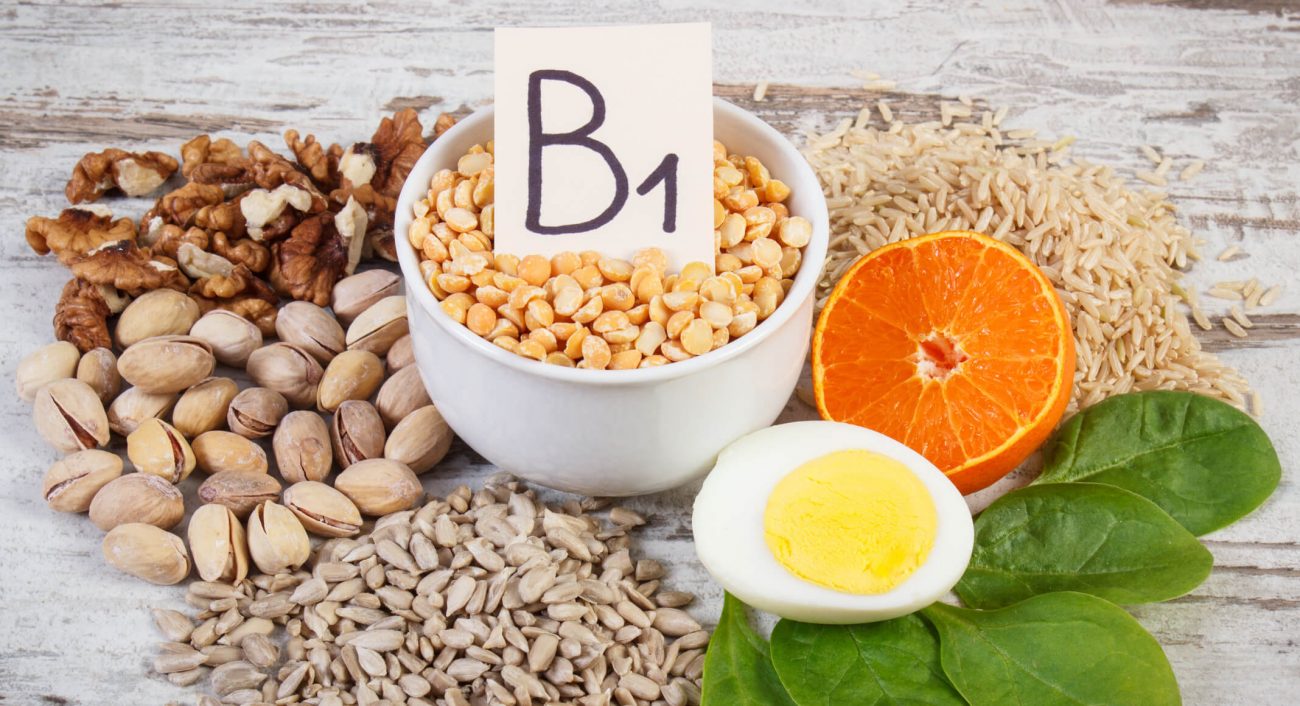
Benefits of Vitamin B1

Yeast, grains, beans, nuts and meat contain
Vitamin B1
Vitamin B1 or thiamine is one of the vitamins of the B-complex family. Vitamin B1 supplements are commonly prescribed to people with deficiency syndromes including beriberi, It is worth mentioning the many vital functions that this vitamin in the human body including metabolic disorders, eye problems and diabetes, In this article will talk about the sources of this vitamin and its benefits in addition to that we will discuss the benefits of vitamin B1 for our bones.
Sources of vitamin B1
There are many sources of food rich in this vitamin – in addition to the above referred to – from the examples of beef, liver, milk powder, nuts, oats, oranges, eggs, legumes and peas, in addition to other foods, vitamin B1 is also added to rice, pasta and bread.
Benefits of Vitamin B1
The benefits of this vitamin in many physiological or pathological aspects of the human body, including its benefits in the cases of disorders of metabolism and brain disorders, especially the benefits of vitamin B1 bone, and the following is a summary of the most important benefits:
- Vitamin B1 has been shown to protect against complications of hip fractures in the elderly. Although calcium and vitamin D have been documented as the most important components of bone formation, some recent studies show the importance of vitamin B1 for the bones.
- The B-complex family generally plays the role of enzyme catalysts that participate in metabolic pathways that produce energy, carbohydrates, fats and proteins in the body, thus improving and protecting the muscular and skeletal structure of the bones.
- In one study – vitamin B1 benefit for bones – vitamin B deficiency was observed in patients with hip and pelvic fracture complications in general, especially vitamin B2, B6 and B12 deficiency, and their decrease was also associated with an increased risk of fragility.
- With ample evidence of the direct relationship between thiamine and bone health in the human body, it remains insufficiently comprehensive to declare vitamin B1 as a major player in bone health, as is the case with calcium and vitamin D, which have many studies – physiological and biological – on their relationship to improving bone health And strengthen it and protect it from fragility.
- One study among bone patients reported that, although thiamine was inadequate among patients with hip fracture, this did not affect the health and robustness of fracture after that.
- In another study – the Chinese Ministry of Health – it was observed that the intake of thiamine was not strongly associated with increased risk of hip fracture in men or women.

